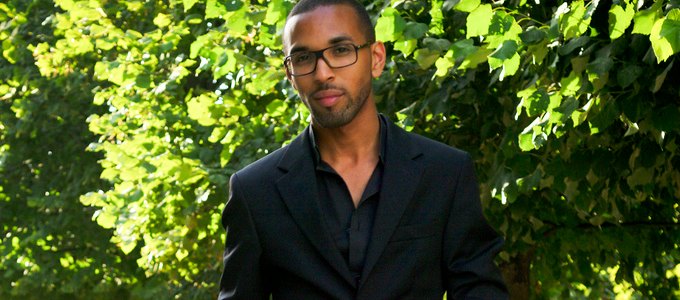Image courtesy of Thinkstock
First impressions don’t just harm individuals. They can harm groups of people, too.
“I would be shocked if you said, ‘Hey, this is my friend Joe. He’s a recovering alcoholic and he used to wet the bed when he was a child,’ ” said Trabian Shorters, founding CEO of BMe. “That might be true, but that’s not the way you introduce [someone]. I don’t know why we do that when we talk about ethnic groups.”
Shorters, previously the vice president of the Knight Foundation, founded the BMe Community in 2013, an organization with a mission to build strong communities inspired by black men. Currently, BMe has 35,000 members.
Despite many negative stereotypes and outdated perspectives, black men do a lot to contribute to the United States, Shorters said. In most communities, a quarter of black men are military veterans. Despite public opinion, there are actually more black men in college than in prison, and black men have been creating businesses at twice the rate as the national average, according to the U.S. Census.
These contributions need to be an active part of the narrative of who black men are, Shorters said. Relying on stereotypes does not allow people to get the whole truth.
“It’s important to recognize that if you define anyone by their challenges, you’re stigmatizing them, whether you’re doing it for good reasons or bad. If people can only relate to you by your greatest struggle or the worse experience in your life, that’s unfair.”
In June, BMe launched the Reach With Us Campaign, to help build communities inspired by black men. Forty men, many of whom are successful community leaders, contributed their stories to a collection of essays, “Reach: 40 Black Men Speak on Living, Leading, and Succeeding,” compiled by Shorters and Benjamin Jealous, former president and CEO of the NAACP.
Many of these authors toured America with their stories and spoke for audiences in cities such as Detroit, Pittsburg and New Orleans.
The essay collection and tour expose people to black men in a more intimate way, Shorters said. Many of these men wrote and spoke about how they overcame challenges such as getting divorced, being closeted, dealing with the death of a loved one and other issues that anyone can relate to.
“[Black men] care about the same causes that everyone else cares about, and many of us are deeply committed to this country’s communities, its commerce, its creativity and its people,” Shorters said.
It’s a common issue to remember good things about people we like and bad things about people we don’t like, he said, and it’s outdated perspectives like this one that prove most harmful and limiting to certain groups of people.
“In a country that has the racial majority, which is what we will very soon be, you need your black and brown Americans to prosper if you want America to prosper,” Shorters said. “You can’t sideline or marginalize the majority of your people and expect to still be competitive as a nation.”
Shorters said the focus on negative stereotypes rather than positive contributions is a common issue among many groups of people, not just black men. But for the U.S. to thrive, we need to recognize everyone’s contributions and aspirations rather than judge them based on their limiting characteristics. People need to be valued, engaged, employed and excited about their country and the opportunities it creates for them.
“We are not going to be the country we were 50 years ago,” Shorters said. “We have to make up our minds about which America we want to live in. The one that Donald Trump screams about or the one that recognizes and values all members of the human family?”















